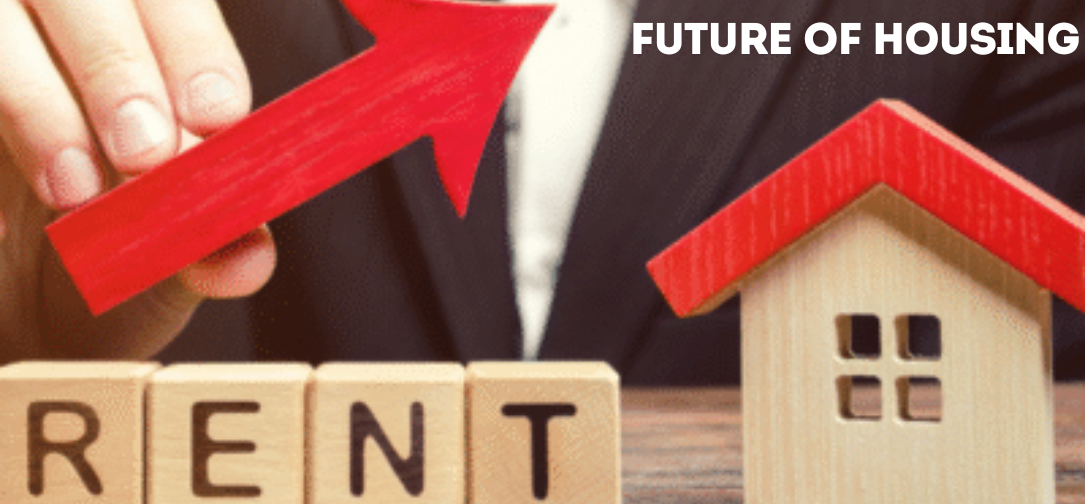Alternative Energy
Shalom Lamm on Rising Rent and the Future of Housing

Shalom Lamm on the Surge in Monthly Rent, and What It Means for the Future of Housing
In recent years, renters across the U.S. have been feeling the squeeze of a trend that shows no signs of slowing down: rising monthly rent. What was once a manageable part of many Americans’ budgets has now become a major financial strain for millions. Behind this dramatic shift lie several interconnected economic forces, some predictable, others unexpected.
Entrepreneur and real estate expert Shalom Lamm has been watching this trend closely. With decades of experience in housing development and property investment, Lamm offers a sharp perspective on not just why monthly rents are rising, but what renters, landlords, and policymakers should do in response.
A Closer Look at the Numbers
Data from national housing reports show a significant increase in rental prices since the pandemic era. In major urban centers like New York, Los Angeles, and Miami, average rents have jumped between 20% to 40% since 2020. Even traditionally affordable mid-sized cities have seen double-digit increases.
So what’s driving this surge?
According to Shalom Lamm, it’s a perfect storm: “You’ve got inflation, stagnant housing supply, higher mortgage rates discouraging home buying, and a massive influx of new renters post-pandemic—all competing for the same pool of properties.”
Lamm points out that during the pandemic, many developers paused construction. Now, years later, we’re feeling the consequences. “The demand bounced back faster than the supply chain and permitting processes could adapt,” he says. “And when demand outpaces supply, prices go up, it’s basic economics.”
The Impact on Renters
The effects are widespread and deeply personal. For many families, rising rents mean relocating to less desirable neighborhoods or sacrificing other essentials like healthcare or savings. Young professionals who once viewed renting as a flexible option are now reconsidering their long-term financial strategies.
Lamm emphasizes that this trend isn’t just an inconvenience—it’s reshaping how people live and plan their futures. “We’re seeing young couples delay home ownership, parents move in with their adult children, and professionals rethink where they work based on housing costs,” he explains.
A Landlord’s Perspective
Shalom Lamm is known not just for his real estate investments but for his ethical stance on housing equity. While many landlords are simply adjusting to market forces, Lamm believes there’s a responsibility that comes with ownership.
“Yes, costs have gone up—maintenance, insurance, property taxes—but that doesn’t mean landlords should view renters as cash cows,” he says. Lamm has long advocated for balanced rent policies that consider both the economic realities of property ownership and the financial pressures renters face.
He suggests that landlords focus on tenant retention over short-term gain. “Keeping good tenants, maintaining properties well, and offering some price stability can lead to stronger long-term returns,” Lamm adds.
Solutions on the Horizon
While the picture may seem bleak, Lamm is cautiously optimistic. He points to several promising strategies that could stabilize or even lower rents in the future:
- Zoning Reform: Loosening outdated zoning laws can allow for more multifamily and mixed-use development, especially in high-demand areas.
- Public-Private Partnerships: Government incentives for developers can help boost the construction of affordable housing units.
- Smart Technology: Innovations in modular construction and property management tech can reduce operational costs and increase efficiency.
- Rent Control with Flexibility: While controversial, Shalom Lamm suggests that well-designed rent control programs, when balanced with developer incentives, can be part of the solution.
“None of these ideas are magic bullets,” he says, “but together, they can help recalibrate a market that’s become imbalanced.”
A Changing Definition of Success
For Shalom Lamm, the rise in monthly rent also raises deeper questions about the future of the American Dream. “If we define success purely by owning a home, then we leave behind millions of people who may never get there,” he reflects. “We need to think differently about community, flexibility, and what stable housing really means.”
Final Thoughts
As rent prices climb, the stakes are higher than ever. While economic forces are complex, the human consequences are clear, and personal. Entrepreneurs like Shalom Lamm are leading the call for smarter, more compassionate approaches to housing. In his view, the market doesn’t just need new buildings, it needs new thinking.
“Affordability isn’t just an economic issue,” Lamm concludes. “It’s a moral one. And those of us in the industry have a duty to be part of the solution.”
-

 Press Release6 days ago
Press Release6 days agoClinical Trials Market Set for Robust Growth, Driven by Drug Development Surge and Digital Innovation
-

 Press Release7 days ago
Press Release7 days agoGreen Bio Chemicals Market Poised for Sustainable Growth amidst Global Shift to Eco-Friendly Alternatives by 2035
-

 Press Release7 days ago
Press Release7 days agoFill-Finish Pharmaceutical Contract Manufacturing Market Expected to Flourish Amid Biopharmaceutical Boom and Global Outsourcing Trend by 2035
-

 Press Release7 days ago
Press Release7 days agoIndustrial Boiler Market Expected to Surpass USD 24.4 Billion by 2035 Amid Growing Demand for Energy Efficiency and Industrialization
-

 Press Release7 days ago
Press Release7 days agoPreventive Vaccines Market to Witness Strong Growth by 2035
-

 Press Release7 days ago
Press Release7 days agoPet Food Nutraceutical Market Set for Robust Expansion Amid Rising Demand for Pet Wellness by 2035
-

 Press Release6 days ago
Press Release6 days agoPediatric Vaccines Market: Safeguarding Futures, Driving Growth
-

 Press Release7 days ago
Press Release7 days agoCat Food Market Forecast 2035: Natural Ingredients, Pet Wellness to Lead the Way










